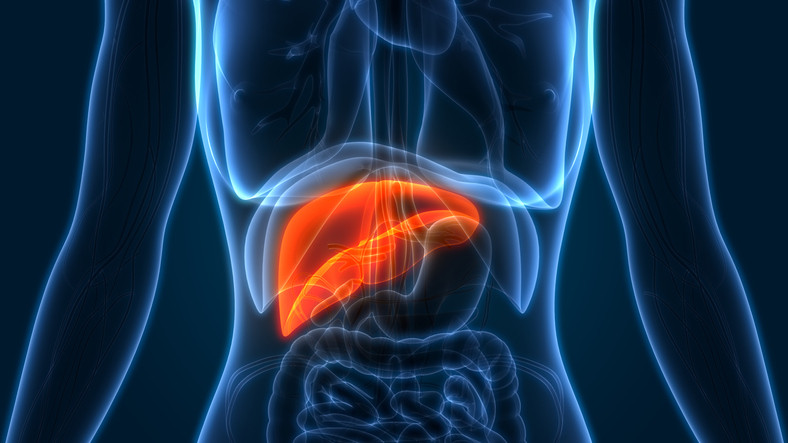
New thinking about plaque in arteries that feed the brain

Want to prevent shifting teeth? Maybe you need retainers

What you need to know about the new dietary guidelines

Food that’s healthier for people and planet can be cheaper, too

New evidence that polyphenol-rich foods help the heart

8 simple ways to reduce ultra-processed foods in your diet

How to curb your stress eating

How to spot Parkinson’s disease symptoms

Heart failure symptoms in women: How they’re different

GERD diet: Foods to avoid to reduce acid reflux
Cancer Archive
Articles
Inflammatory foods are linked with higher colon cancer risk
In the journals
Certain foods may trigger inflammation in the body that can increase a person's risk for colon cancer, suggests a study published online Jan. 18, 2018, by JAMA Oncology.
Researchers followed the diets of more than 121,000 people (46,800 of whom were men) for 26 years. Participants recorded what they ate, and their diets were scored based on the amount of foods consumed that are linked to inflammation, such as red and processed meats, sugary beverages, and refined grains.
And now for some good news on health
Good news on health –– which seems hard to come by right now –– includes declines in the rates of six out of 10 major causes of death in the United States.
More sexual partners, more cancer?
A study of older adults found that those who had had more sexual partners were more likely to have developed cancer, but that does not mean there is a causal connection, and there are many ways that sexual behavior can affect cancer risk.
Chemotherapy and hearing loss: Monitoring is essential
One of the possible side effects of chemotherapy that is not as well-known is hearing loss. If you are going to undergo chemotherapy, you should have your hearing tested before and after the course of treatment.
Heart disease and cancer risk may be linked
In the journals
People with heart disease also have a higher risk of developing cancer, according to research presented at the American Heart Association's Scientific Sessions in November 2019.
Researchers evaluated data from 12,712 people from the Framingham Heart Study who did not have heart disease or cancer at the study's launch. They used a risk estimator that predicts a person's chance for getting heart disease within 10 years.
Newer skin cancer treatments improve prognosis for those with cutaneous melanoma
Though only about 1% of skin cancers are melanomas, they are responsible for 90% of skin cancer deaths. Recent advances in treatment options have improved survival rates for melanoma, but it’s still best to take preventive steps to protect your skin.
Can you outrun an early death?
Research we're watching
People who run — even in small amounts — are less likely to die during a given period compared with those who don't run, according to an analysis published online Nov. 4, 2019, by the British Journal of Sports Medicine. The benefit appears even among people who run for less than 50 minutes once a week, at speeds below 6 mph.
Researchers began their review of 14 studies, involving more than 200,000 people, in hopes of determining whether running can stave off deaths from heart disease, cancer, and other causes. They also sought to find out how much running people need to do to benefit. The studies tracked participants for periods ranging from five-and-a-half to 35 years. Over the course of these studies, 25,951 of the participants died. When comparing those people to those who lived until the end of the study, the researchers found that people who ran, no matter the amount, were 27% less likely than nonrunners to die from any cause during the study period. Runners also had a 30% lower death rate from cardiovascular disease and a 23% lower death rate from cancer. While running was linked with longer life and less disease in these studies, this doesn't necessarily prove that it was the running that actually caused better health. But the results suggest that lacing up those sneakers and going for a quick jog might improve your health.
What’s the beef with red meat?
A recent study suggested that eating red or processed meats won't necessarily harm your health. What is the truth?
The news headlines were everywhere: "It's Okay to Eat Red Meat." The source for this statement was a study published online Oct. 1, 2019, in Annals of Internal Medicine.
An international team of researchers conducted five systematic reviews that looked at the effects of red meat and processed meat on multiple health issues, such as heart disease, cancer, diabetes, and premature death.
Rural health risks?
Research we're watching
People living in rural areas of the country appear to be more likely to die from preventable causes compared with people in more urban locations, says a CDC report. The report looked at deaths from 2010 to 2017 and found that people in rural locations were more likely to die from preventable conditions, including cancers and heart and respiratory diseases. In 2010, about 29% of cancer deaths in rural areas were potentially preventable, compared with 18% of cancer deaths in urban areas. In addition, 45% of heart disease deaths in rural locations were deemed preventable, compared with 24% of heart disease deaths in urban areas. The authors suggested several strategies to reduce disparities, including better screening programs and initiatives to encourage better eating and exercise habits, as well as smoking cessation.
Image: shaunl/Getty Images
Beyond heart health: Could your statin help prevent liver cancer?
Statins have been prescribed for decades to lower cholesterol, but a recent study found that one type of statin may provide people with certain kinds of liver disease protection from developing liver cancer.

New thinking about plaque in arteries that feed the brain

Want to prevent shifting teeth? Maybe you need retainers

What you need to know about the new dietary guidelines

Food that’s healthier for people and planet can be cheaper, too

New evidence that polyphenol-rich foods help the heart

8 simple ways to reduce ultra-processed foods in your diet

How to curb your stress eating

How to spot Parkinson’s disease symptoms

Heart failure symptoms in women: How they’re different

GERD diet: Foods to avoid to reduce acid reflux
Free Healthbeat Signup
Get the latest in health news delivered to your inbox!
Sign Up











